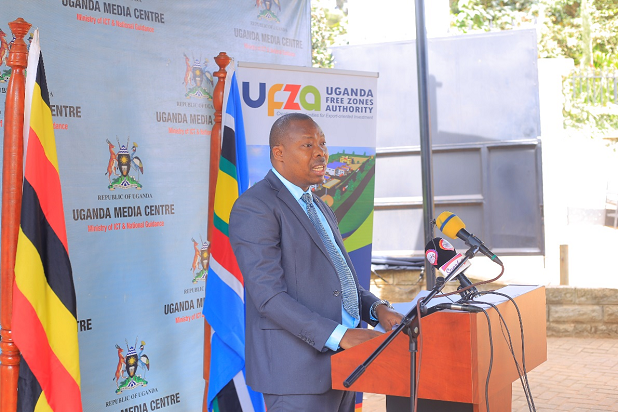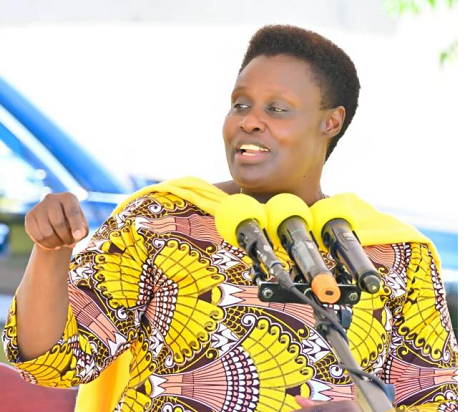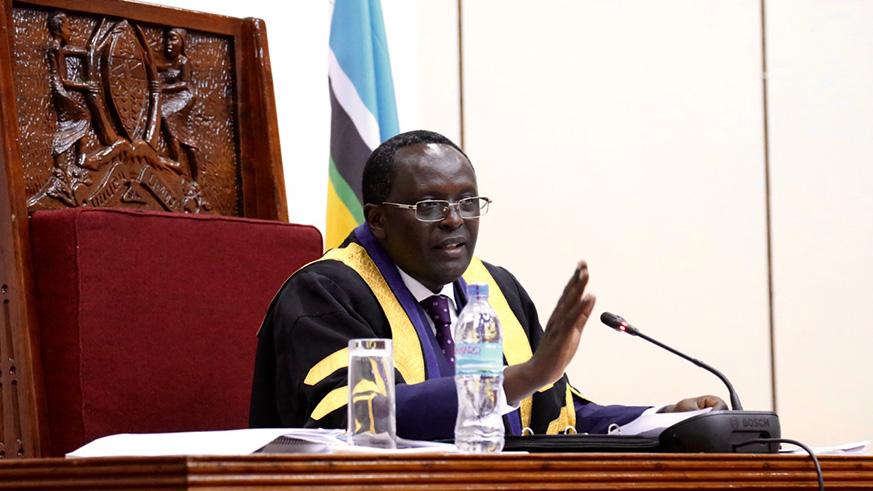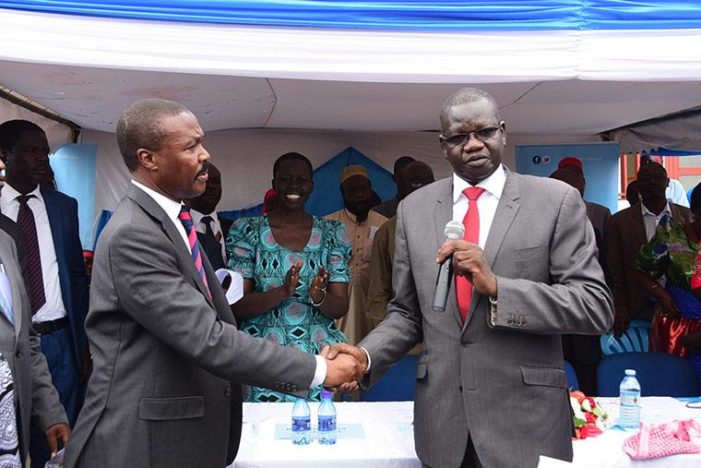Mr. Hez Kimoomi Alinda, Executive Director of Uganda Free Zones Authority addressing the media at Media Centre
Uganda Free Zones Authority (UFZA) presented its Annual Performance for the Financial Year 2020/21 at the Uganda Media Centre. The report captured the performance of the Free Zones, challenges encountered and recommended actions to improve the Free Zones eco-system in Uganda.
Government appropriated and released to UFZA a budget of Uganda shillings 8,964,934,000 for the Financial Year 2020/21 for both recurrent and Development expenditure.
Despite the disruptions caused by the COVID-19 pandemic, UFZA, embarked on numerous activities that saw the commencement of the construction works of the first public Free Zone in Uganda at Entebbe International Airport and also issued three (3) Developer Licenses to the private sector companies. Entebbe International Airport Free Zone, located within the precincts of Entebbe International Airport, will attract six (6) Private Operators and one (1) Anchor firm engaged in agro-processing and manufacturing for export. The Free Zone is projected to generate an additional US$13.4 million in private sector investment at operationalisation, and create export earnings of over US$ 4.02 million per year.
The Authority started implementation of the second Strategic Plan 2020/21-2024/25 which is aligned to seven programmes of the third National Development Plan. These include: Agro industrialisation, Mineral Development, Sustainable Development of Petroleum Resources, Private Sector Development, Manufacturing, Sustainable Energy Development, and Sustainable Urbanisation and Housing.
Speaking at the event, Mr. Hez Kimoomi Alinda, the Executive Director of UFZA, stated that the Free Zones’ contribution to the total exports earnings of Uganda increased to US$ 1.247 billion from US$154 million in FY2019/20. The products that were exported from the Free Zones included Semi-manufactured Gold, Cocoa beans (whole or broken, raw or roasted), Flowers and Horticulture Products, Sandalwood Essential oils, Tobacco (partly/wholly stemmed), Natural calcium phosphates and Wheat Flour among others.
The top ten destinations for exports from Free Zones were the United Arab Emirates (UAE) with a significant increase to US$1.16 billion from US$106.4 million recorded in FY2019/20. Netherlands ranked second contributing (US$39.49 million), an increase from US$32.9 million in FY2019/20. Other major destinations were Belgium (US$6.88 million), Turkey (US$2.66 million), Germany (US$2.34 million), Italy (US$ 2.21 million), United States of America (US$1.93 million), Russia (US$1.52 million), and South Sudan (US$1.27 million) among others.
Mr. Alinda further said ‘The development of Free Zones offer an opportunity for the Government of Uganda to target resources towards tackling challenges of low value-added agricultural production, and manufacturing activities, in order to deliver new employment and market opportunities.
In the FY 2020/21 the actual employment in Free Zones increased to 8,611 from 6,382 jobs in FY2019/20. The declined in FY2019/20 resulted from the disruptive effects of the COVID-19 pandemic on the economy. The total value of local purchasing and subcontracting stood at US$13.27 million creating the much needed backward linkages in the economy.
The Authority encountered some challenges during the FY 2020/21 such as lack of Strategic, expansive and serviced industrial land for Free Zones, delays in issuance of Statutory Instruments for licensing Free Zones and delay in operationalization of the Free Zones Customs Management Module on the Uganda Electronic Single Window. Going forward, fast-tracking issuance of Sanitary and Phytosanitary Certificates to exporters of fresh produce for export; development and installation of a Gama Radiation Facility at Entebbe International Airport; and intentional acquisition of strategic and expansive land will propel development of export-oriented investments in Free Zones.
UFZA contributes to Uganda’s Industrialisation Agenda with a focus on attracting export-led investments and establishing industrial infrastructure to enhance value addition in manufacturing, agro-processing, and mineral-processing undertakings. This will lead to an increase in exports, and employment opportunities for the local population.
Uganda Free Zones Authority (UFZA) is a Statutory Body established by the Free Zones Act, 2014, for the purpose of creating opportunities for export-oriented investment and job creation.
UFZA’s mandate is to oversee the establishment, development, management, marketing, maintenance, supervision and control of Free Zones in Uganda and to provide for any other related matters.
A Free Zone is a gazetted geographical area where processing and manufacturing of goods for export is carried out without being subjected to import and export duties and levies to make the goods competitive on the global market.






